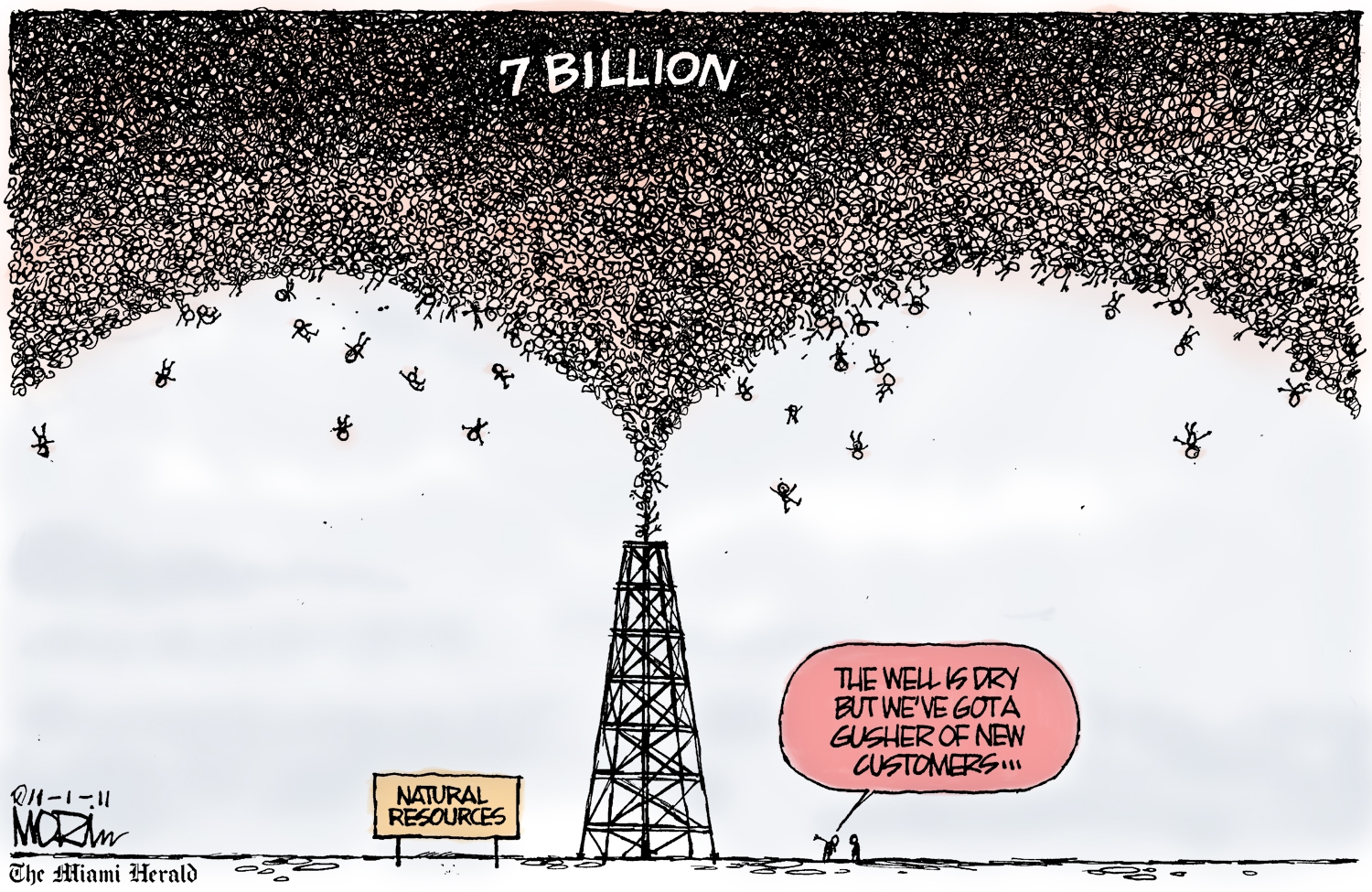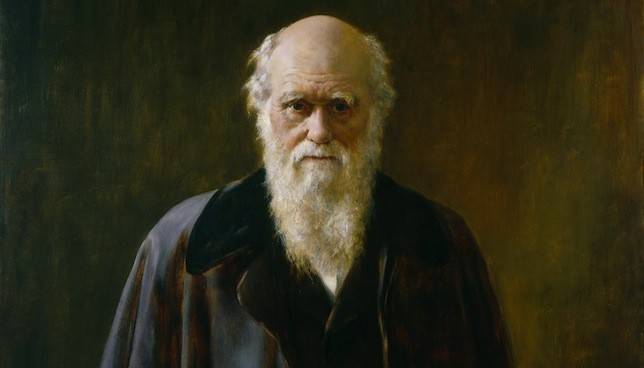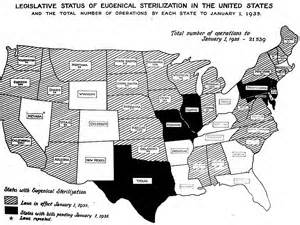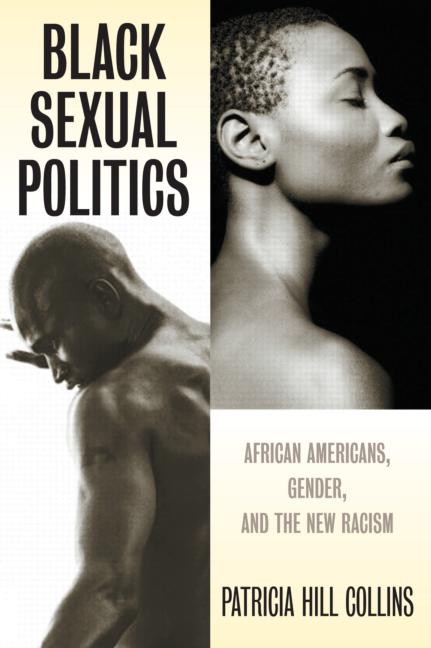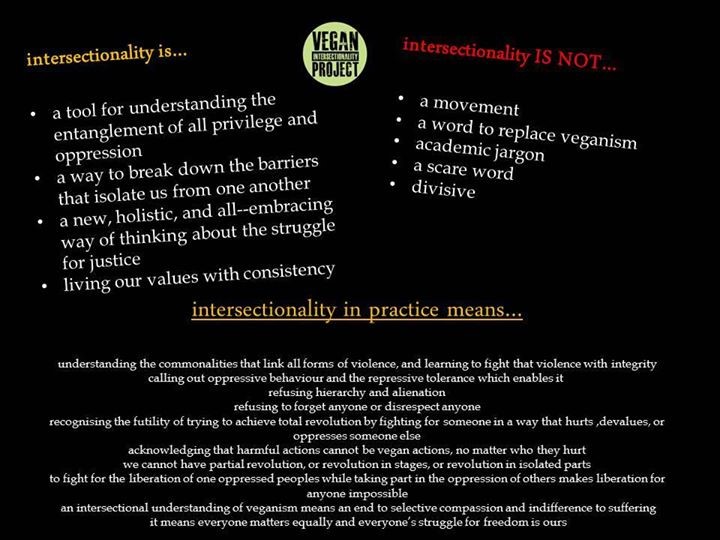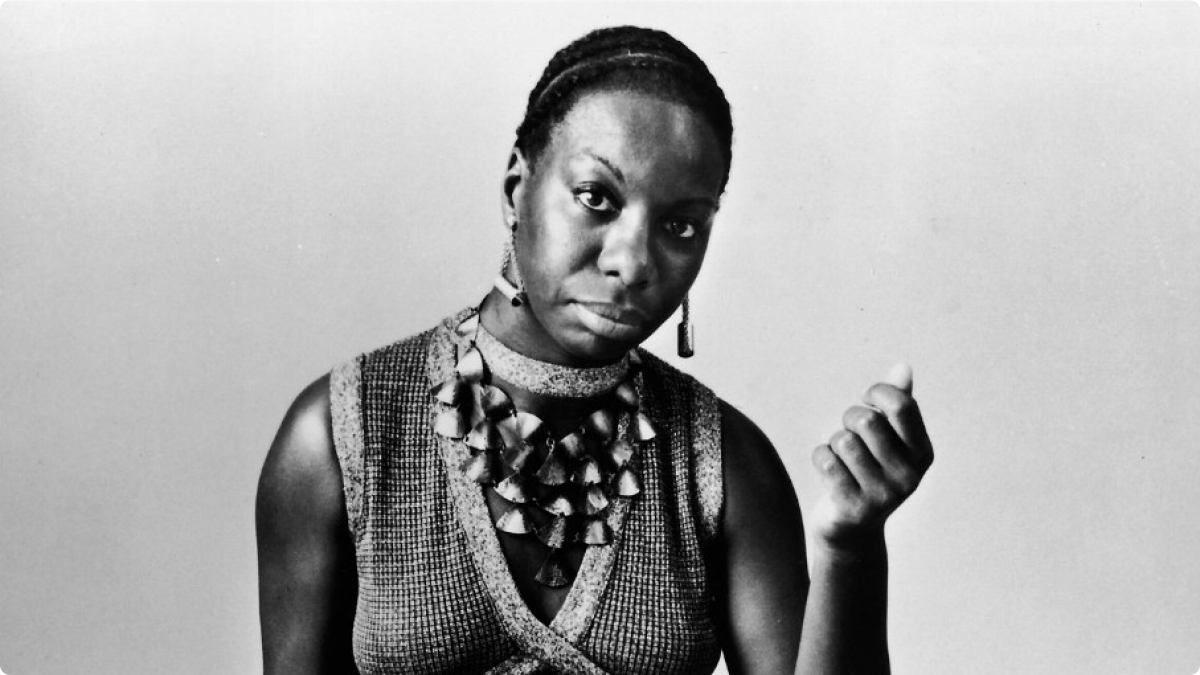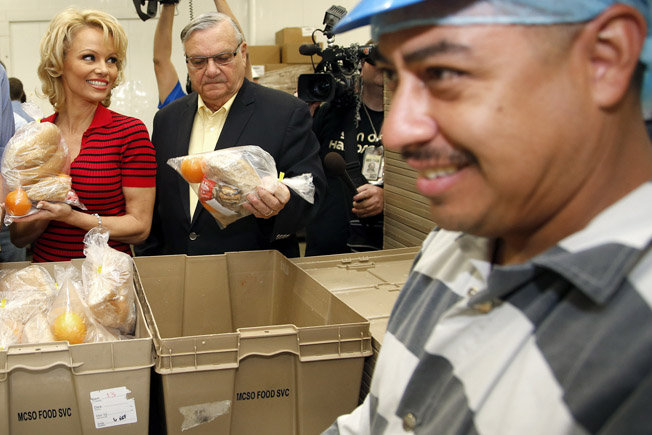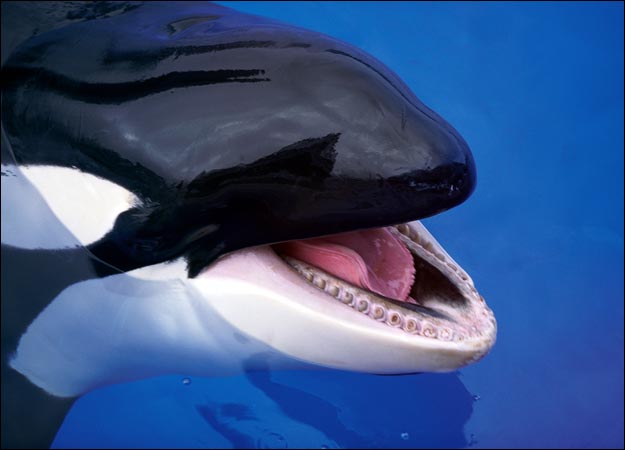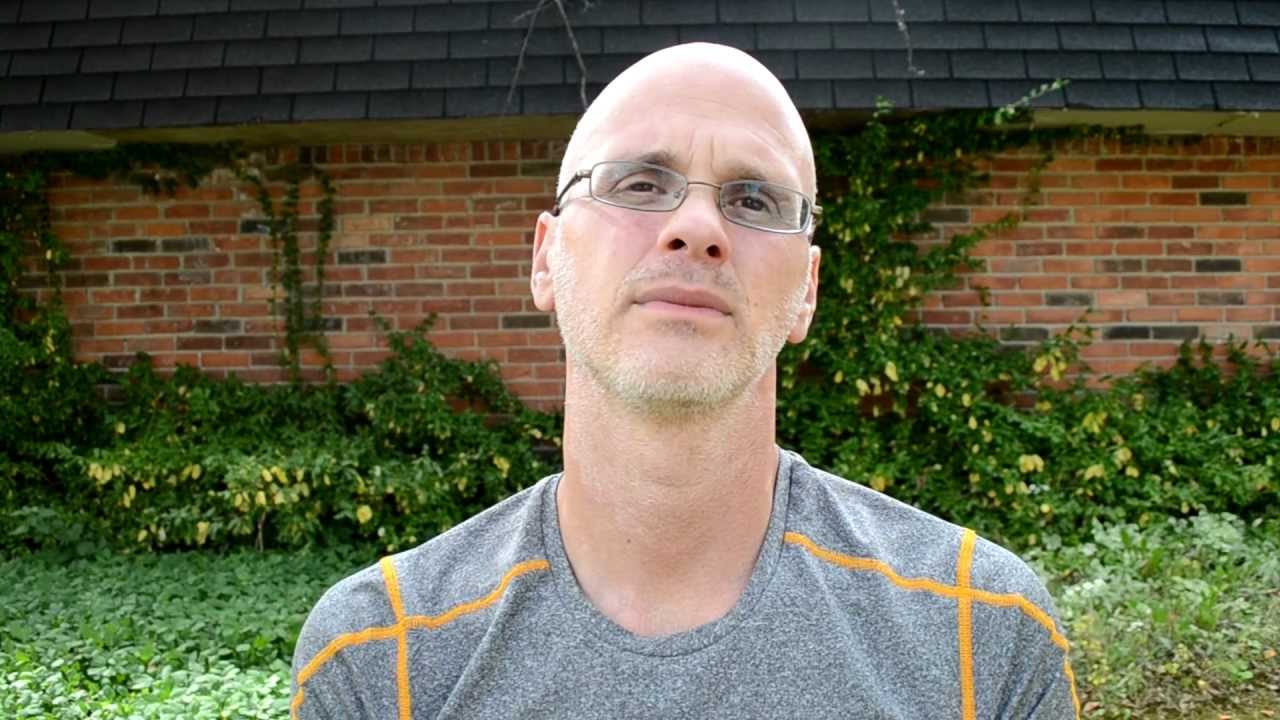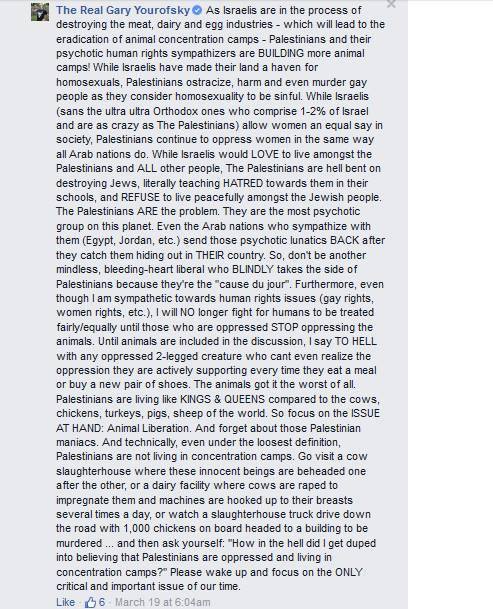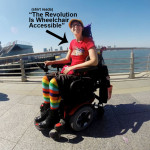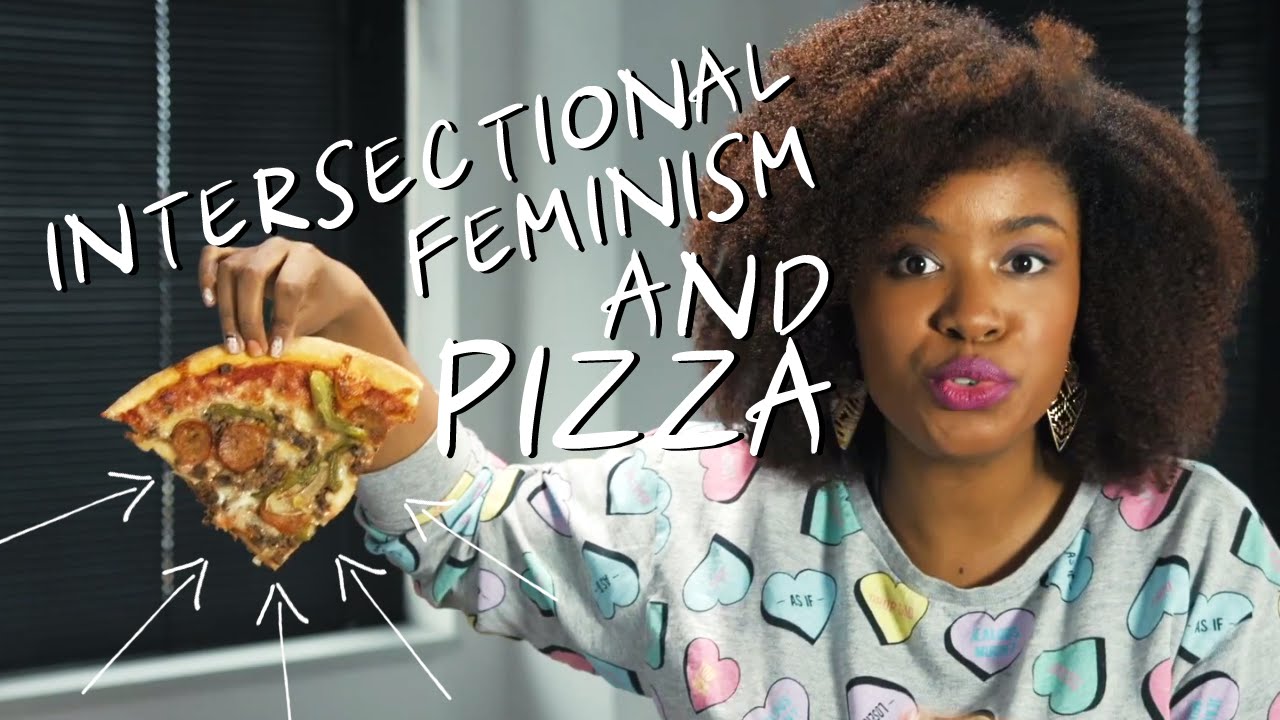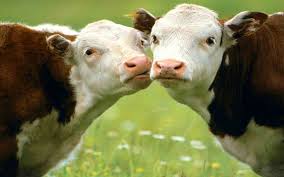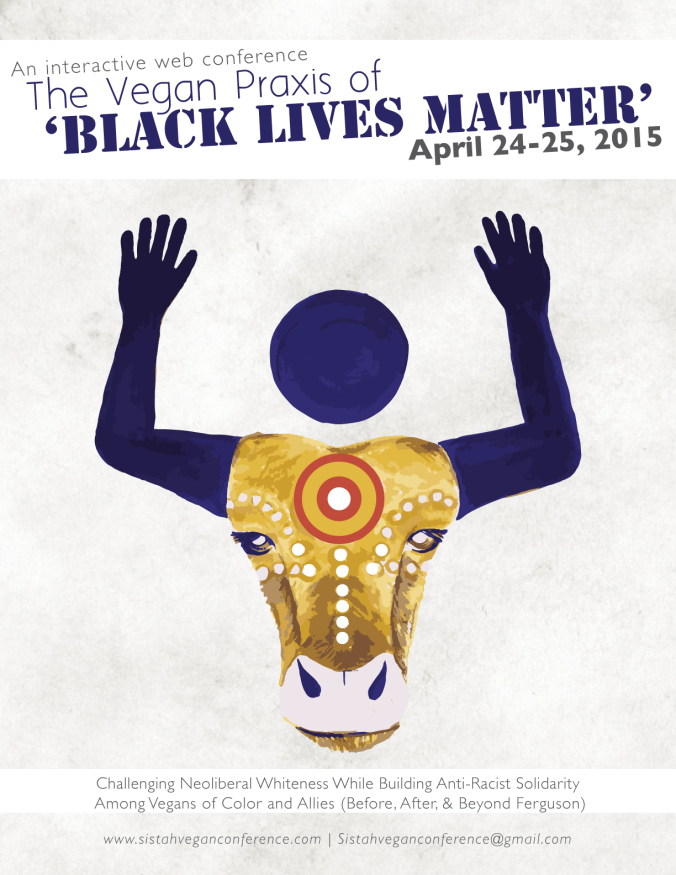Trigger Warning: Post contains potentially upsetting discussion of eugenics, forced sterilization and racially insensitive commentary from the white-centric Nonhuman Animal rights community. Also references sexist, classist, and ableist positions that are responsible for considerable structural harm to vulnerable demographics.
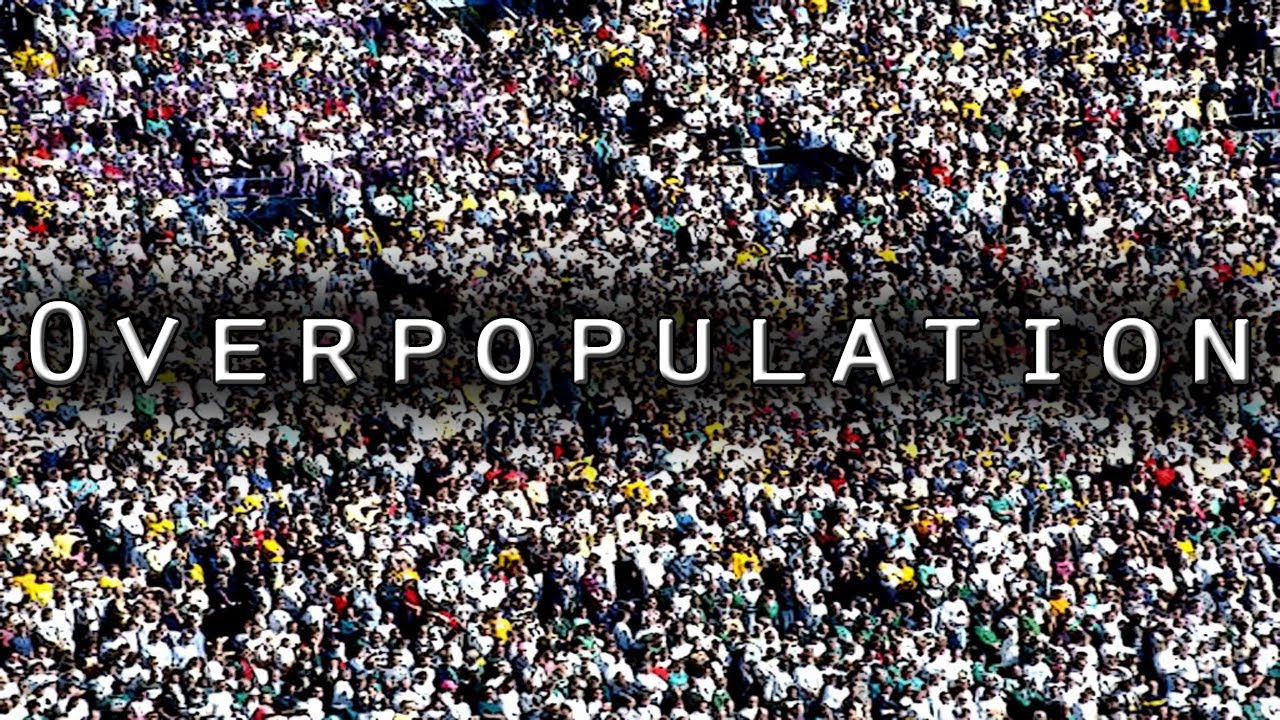
By: Dr. C. Michele Martindill
Stories about overpopulation appear so often in the news and op-ed essays they are barely gets a second glance. Overpopulation is blamed for all the ills of the social world, everything from obvious social problems such as poverty and hunger to less known concerns such as climate change and deforestation of the planet. Rarely is the concept of overpopulation questioned or defined beyond citing the overall population of planet earth or particular nation states. It is easy enough to find the figures—earth now has an estimated population of 7,318,275,998 as of this writing (Current World Population, 2015) and the United States has an estimated population of 324,907,247. Whenever news stories question how to dispose of the vast amounts of garbage generated by such numbers or to address an environmental hazard such as carbon emissions the first thought is to reduce the population that is destroying the planet. Sociologist David L. Altheide, author of Creating Fear: News and the Construction of Crisis (2002), argues that such stories are morality plays that unfold in “news reports, reality TV shows,…and documentaries,…it is the world of predators and prey, criminals and citizens,…Stories tend to be told from the perspective (voice) of the victim or criminal justice agents; seldom do we see or hear the accused outside of a prescribed role, for example, in handcuffs (193).” In many respects overpopulation is a morality play, pitting the dominant elite white culture against Persons of Color, women and anyone living in poverty, those who are handcuffed.
Vegans are divided in their response to overpopulation stories, but they seem to agree something must be done to save the planet and the lives of animals. Some vegans are vocal in their belief that if the human population was reduced or even eliminated then animals would no longer be slaughtered for consumer products, and the environment would heal. In an effort to counter overpopulation scare tactics, there are other vegans who quickly assert how livestock production contributes to water pollution, desertification of the land, displacement of Native populations and carbon emissions, but they become mired in point-counterpoint debates over environmental science, giving scant attention to the human groups most affected by the overpopulation morality play. They suggest the solution is more education and accessible birth control so that women can make better choices and stop having such large families. The problem in each instance is the absence of critical thought regarding the use of the term overpopulation. Specifically, as long as the vegan animal rights movement frames the discussion about human procreation as a choice argument grounded in pseudo-concern for the fate of the planet and economics, the movement ignores a far more serious threat and deep contradiction to veganism: the advancement of eugenics, the belief that the human gene pool can and should be improved through selective procreation and forced sterilization.
Any overpopulation claim that fails to address eugenics and simply demands that humans have to stop procreating because the planet and its resources are threatened is nothing more than a pseudo concern for the planet, a concern meant to disguise racism, classism and sexism. Overpopulation is a socially constructed concept with a long history of being promoted by the white man cis gendered elite scientists and corporations of the world. Stripped of polysyllabic terminology and statistical arguments about environmental damage, overpopulation is nothing more than a nameless, faceless scare tactic. Its aim is to objectify the so-called unruly masses, to deny them their rights, and to glorify the wealthy elite by encouraging them to procreate and populate the world with their precious gene pool. Those who assert that no one should procreate regardless of social status still fail to acknowledge the sexism and racism of such a demand.
Certainly there is an element of truth to the overpopulationist propaganda, e.g. climate change is real, but it has little to do with the number of humans on the planet and everything to do with the overpopulation of cattle (McKnight, 2014). Oil spills, deforestation and global poverty are not the result of overpopulation; rather, they can be directly linked to corporate greed, capitalism that regards the earth as nothing more than an endless supply of materials for consumer goods and the military-industrial complex that values war over investing in real peace keeping efforts such as feeding the hungry. Arguments against these and other overpopulationist claims can be refuted statistic by statistic, but such debate will do nothing to reframe the issues in a way that accentuates the hidden agenda of overpopulationists—their racism, sexism, ableism and classism. Any future dialogues need to focus on individualism, social darwinism and eugenics, the ideologies that underpin the entire overpopulation perspective.
The rift between overpopulationists and social justice advocates both within and outside of the vegan movement is growing, thanks in large part to the hatred of humans so frequently espoused by animal rights leaders such as Gary Yourofsky and his loyal followers. Off-hand comments about humans not deserving to live because they are responsible for all of the suffering brought on other animals are expressions of the overpopulationist dogma and based in individualism. In order to understand how social darwinism and eugenics work it is necessary to first look at the concept of individualism (see Note 1).
Individualism is the belief that each person is only responsible for their own self and will receive rewards—wealth, salaries, social position, education, access to medical care—based on individual merit. This belief system is used to support capitalism and to keep the working class motivated while performing mundane tasks in dead end jobs. As long as workers believe if they work hard enough they can rise in social class and accumulate wealth, they will continue to show up for work, not complain about working conditions and tell anyone who will listen that the company owners are heroes. Those who do not succeed are easily dismissed as individuals who did not work hard enough or long enough; it is their own fault for being failures. After all, the evolution of society can be summed up as survival of the fittest, just like in nature, right? Well, no.
Ever since the work on evolutionary theory by Charles Darwin became known there have been attempts to identify patterns of evolution in society similar to those found in plants and other animals. Policy makers have long thought it obvious that those living in poverty or with mental health problems were not as evolved as the wealthy elite class. Such a belief depends on a misinterpretation of Darwin’s theory of evolution. While Darwin was interested in how plants, for instance, adapted to a changing environment and described the process as natural selection (not to be confused with artificial selective breeding), he also observed how such processes occurred slowly and could not be seen in any one generation. He did not initially see the processes as some sort competition in which only the fittest survived or were rewarded in some way by nature. Herbert Spencer (1820-1903) is credited with coining the term survival of the fittest in relation to society, and then Darwin later used the term to refer to local, immediate adaptations to a given environment. As time passed, Darwin’s theory became equated solely with survival of the fittest rather than natural selection, and sociologists tagged the phrase survival of the fittest as social darwinism, usually used as a pejorative term. Sociologists were pitted against politically conservative policy makers who were trying to justify discriminatory legislation by claiming only the fittest humans should survive. Social darwinism—a pseudo-scientific claim—thus became the rationalization for individualism and the social policies that were based on individualism.
Individualism also decries charity as unnecessary for the lower classes since they are responsible for the consequences of their own laziness, for financial troubles and for having big families or too many children. While capitalism depends on having a ready supply of workers willing to accept low pay and to sing the praises of the economic system that entraps them, capitalism bears no responsibility for the hardships related to poverty. What a perfect economic system!! The wealthy elite exploit the workers, cast aside the humans deemed unfit and manage to get the exploited masses to defend the entire system by keeping the hope alive that anyone can achieve THE AMERICAN DREAM!!
This whole notion of individualism or the American Dream, which is now a global belief system, can be seen throughout the industrialization and modernization of the States. Eugenics, the belief and related practices that any animal population, including the human population, can be genetically improved through controlled reproduction, dates back centuries, but became closely linked to individualism in the 19th century. Scientists who promoted eugenics or the eugenics movement of the 20th century were at first interested in controlled reproduction as a way to eliminate mental illness and other hereditary diseases. After all, if scientist Gregor Mendel could trace patterns of inheritance in pea plants in 1865, later scientists reasoned similar patterns might be traced in humans. Eugenics was the cornerstone of the Immigration Restriction League which was founded in 1894 to prevent those of certain races who might contaminate the superior American gene pool from entering the country. Literacy tests were proposed as early as 1897 to help identify inferior immigrants. In 1910 Charles Davenport founded the Eugenics Record Office and within the next twenty years the goal of the organization became preventing unfit humans from having any children.
By the late 1920s forced sterilization of those deemed unfit was widely accepted and laws based on a 1914 model statute were passed:
Advocacy in favor of sterilization was one of Harry Laughlin’s first major projects at the Eugenics Record Office. In 1914, he published a Model Eugenical Sterilization Law that proposed to authorize sterilization of the “socially inadequate” – people supported in institutions or “maintained wholly or in part by public expense. The law encompassed the “feebleminded, insane, criminalistic, epileptic, inebriate, diseased, blind, deaf; deformed; and dependent” – including “orphans, ne’er-do-wells, tramps, the homeless and paupers.” By the time the Model Law was published in 1914, twelve states had enacted sterilization laws (Lombardo, n.d.).
It is estimated that between the early 1900s and the mid-1970s over 60,000 people were involuntarily sterilized. Women were the main victims of forced sterilization, and at first many who were sterilized were already committed to mental institutions and labelled imbeciles. As sterilization became the norm, some victims were taken from their homes and reasons for sterilization included pregnancy while unmarried, general promiscuity, having a sexually transmitted disease or being a pauper. The reasoning by the thirty-three states with forced sterilization laws was that it was a way to prevent people from becoming a burden on society, especially if they had to be housed in a state run mental institution, receive some kind of public aid or be held in prisons. Also, at this time in history more and more immigrants were arriving in U.S. cities and they were being blamed for the rise in crime and poverty. Eugenics was heralded as a solution by medical professionals and city officials alike (Norrgard, 2008).
It is an understatement to say racism and eugenics are historically and inextricably linked. Throughout the eugenics movement Black women were regarded as responsible for passing traits to their daughters that would lead to a future of doom, lives of “poverty, delinquency, and despair (Sebring, 2007).”
During the 1950s in the US South white women faced economic, legal, and medical obstacles to their access to reproductive services such as contraceptives and sterilization procedures. During this same time family planning initiatives targeted women of color (particularly black women) encouraging the use of contraceptives and sterilizations in the interest of reducing the growth of the black population. Family planning initiatives were politically espoused by conservatives such as Strom Thurmond, as a racialized form population control in the interest of limiting black voter strength in the US South. State funding for family planning clinics frequently received popular support when associated with women of color, though the same was not true when associated with white women. Or, in the words of Louisiana judge Leander Perez, “The best way to hate a nigger is to hate him before he is born.” (Sebring, 2007)
Who were the women who were involuntarily sterilized? The overpopulationists have managed to objectify them as populations, robbing them of their names, faces and voices in the process. Efforts to compensate victims were and continue to be met with disdain as well as arguments that the state funds are better spent elsewhere. Such was the case in North Carolina until 2013 when the victims were awarded $10 million dollars after a prolonged battle with legislators. Elaine Riddick is one of the victims.
Elaine Riddick was raped and impregnated at 13 years old and, after giving birth to her baby boy Tony, she was sterilized against her will. Afterward, she lived for years in shame, but had something to prove.
“People need to know that injustice was done towards them and they need to be compensated for that,” said Riddick,…
Riddick has been a formidable advocate for her fellow victims, pressing North Carolina to make amends. But multiple attempts at compensation have not come to fruition.
On Thursday Riddick said she was amazed to learn of North Carolina’s plans to compensate victims.
“I tip my hat to North Carolina, finally they came to their senses and decided to do what’s right,” she said.
Still, Riddick added, the money isn’t enough.
“You can’t put a price on someone taking your womb or castrating you, it’s humiliating,” Riddick said (Naggiar, 2013).
It was not until after WWII that forced sterilization began to fall out of favor with proponents in the United States. People learned that Laughlin’s Model Sterilization Law was the inspiration for the law adopted by Nazi Germany in 1933, a law that legally sanctioned the sterilization of over 350,000 people. Laughlin was even awarded an honorary degree from the University of Heidelberg in 1936 for his work in “the science of racial cleansing” (Lombardo P. A., 2008). So, it was not the racism of sterilizing Black women that launched the move to halt the sterilizations, nor was it forced sterilizations of girls as young as ten. Furthermore, the laws were not changed based on the lack of informed consent. No. The laws were not challenged until it became embarrassing to be associated with the genocide carried out by the Nazis, a genocide that ran concurrently with a genocide of POC in the states.
Eugenics and forced sterilization remain in the news today. In 2013 it was revealed that 148 women prisoners in California were denied their right to informed consent and sterilized between 2006 and 2010. On September 25, 2014 California passed Senate Bill 1135 to “prohibit sterilization for the purpose of birth control of an individual under the control of the Department of Corrections and Rehabilitation or a county correctional facility… (Senate Bill No. 1135, 2014).”
In September of 2014 the vice chairperson of the Arizona Republican Party and former state senator resigned his position after making comments about the sterilization of Medicaid recipients:
“You put me in charge of Medicaid, the first thing I’d do is get Norplant, birth-control implants, or tubal ligations,” Russell Pearce said on his radio show, according to a transcript from the Arizona Republic. “Then we’ll test recipients for drugs and alcohol, and if you want to [reproduce] or use drugs or alcohol, then get a job (McDonough, 2014).”
Similar stories continue to be reported from around the world, including comments by self-described vegans. A recent Facebook discussion among vegans on the topic of over-population shows how someone in a position of privilege can become defensive at the mere suggestion of racism in the language they use to discuss procreation:
Commenter #1: I am always skeptical around blanket statements about procreation. For too long it’s been a form of racism to talk about POC women as “breeders” or “welfare queens.” Demands to end procreation also come from a classist perspective in that rural white women and POC women have been targets, including decades of pressure to be sterilized or in some cases being sterilized without consent. Which leads to the observation that arguments against procreation contribute to sexism when they silence the voices of women. Yes, women should have access to information about birth control and adoption, but not at the expense of a patriarchal society doing so simply to perpetuate patriarchal values. What we’re really talking about here is the need to realize how corporatism and capitalism combine to create all of these products that are destroying the environment and marketing them to the point people think they can’t live without them. It’s not procreation that is the issue, but rather how consumption is promoted as a way of life
Commenter #2: Everyone should stop breeding imo. Every color, rich or poor. Birth control should be free & always available worldwide imo.
Commenter #1: …did I really just read these words? ” Everyone should stop breeding imo. Every color, rich or poor. Birth control should be free & always available worldwide imo.” I’ll play nice and ask: Why in your opinion should everyone stop “breeding”? Also, the word “breeding/ers” is problematic in terms of socially reproducing racism.
Commenter #2: The world is severely overpopulated period. We need to give it a rest. Too many ppl too many unnecessary selfish problems. Breed means procreate nothing racist. [emphasis added]
It is common to find the words breeders and moos used among certain vegan overpopulationist factions in reference to women who give birth to children, and there can be little doubt those terms are both racially charged and sexist.
Banana Girl Freelee, a self-described vegan, uses similar racist, sexist and classist language in a recent YouTube video:
We need drastic action or else we’re goin’ down the shitter and we’re takin’ the rest of the species with us. We’re destroying all the other species, including ourselves. So obviously the load needs to be lightened on Mother Nature. We need to stop draining the f*cking resources until they’re all gone and so here’s what I propose: is that people have a test. They need a license, a permit before they procreate, before they have children. They need to pass a test…So, what does that test consist of?…They definitely need to have a stable income so they can actually look after children…have money in the bank that’s for sure (vegan, 2015).
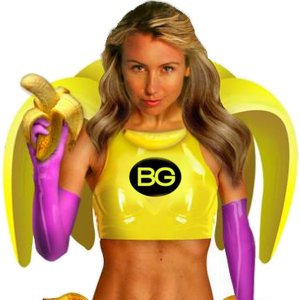 At a time when voting rights for Persons of Color are being challenged with voter identification laws and literacy tests, it is not surprising to find the script for the overpopulation morality play includes a test for the right to procreate.
At a time when voting rights for Persons of Color are being challenged with voter identification laws and literacy tests, it is not surprising to find the script for the overpopulation morality play includes a test for the right to procreate.
Ironically, members of the upper class are encouraged to have as many children as they want, as shown in a recent story about how large families are now “the ultimate status symbol” among wealthy women from New York City’s Upper East Side. Wendy Martin, Ph.D., author of Primates of Park Avenue, is quoted as saying:
When you think about it, it’s logical that a big family equals a big status symbol: It’s expensive to raise kids anywhere, and especially in New York City, where full-time nannies, private school, and summer camp are standard expenses. In the US, the average cost of raising a child is $245,340, according to a recent government report. But that figure more than doubles — to $540,514 — when that child is being raised in Manhattan (Zeveloff, 2015).
 Clearly, as long as the interests of the upper class are at stake, they must be defended and presented in a way consistent with individualism, with the notion that they earned the right to have as many children as they want and can afford. There are no suggestions that the wealthy need more education about birth control, nor is there any implication that they somehow are not smart enough to understand how large family size must surely lead to poverty. And what about all of those scarce resources that these children will consume over the course of their lifetimes? All is well as long as they can afford the steaks, fur coats, servants and fancy cars that burn an exorbitant amount of fossil fuel? Population expert Fred Pearce argues that rising consumption is the real problem, not overpopulation:
Clearly, as long as the interests of the upper class are at stake, they must be defended and presented in a way consistent with individualism, with the notion that they earned the right to have as many children as they want and can afford. There are no suggestions that the wealthy need more education about birth control, nor is there any implication that they somehow are not smart enough to understand how large family size must surely lead to poverty. And what about all of those scarce resources that these children will consume over the course of their lifetimes? All is well as long as they can afford the steaks, fur coats, servants and fancy cars that burn an exorbitant amount of fossil fuel? Population expert Fred Pearce argues that rising consumption is the real problem, not overpopulation:
“Rising consumption today far outstrips the rising head count as a threat to the planet,” Mr. Pearce wrote in Prospect, a British magazine, in 2010. “And most of the extra consumption has been in rich countries that have long since given up adding substantial numbers to their population, while most of the remaining population growth is in countries with a very small impact on the planet.”
“Let’s look at carbon dioxide emissions, the biggest current concern because of climate change,” he continued. “The world’s richest half billion people — that’s about 7 percent of the global population — are responsible for half of the world’s carbon dioxide emissions. Meanwhile, the poorest 50 percent of the population are responsible for just 7 percent of emissions (Haberman, 2015).
Maybe the time has come for vegans who double as overpopulationists to think critically about whether they want to continue supporting a racist, sexist and classist ideology or consider how consumerism and consumption impact planetary resources.
Even if all the eugenics laws in the world are struck from the books, the ideology of individualism and the American Dream will continue to drive our social world and a large segment of the vegan movement. It is far easier to hate all humans for what they are doing to other animals than it is to examine how we all participate in systems of oppression. Go ahead and blame oppressed and exploited humans for speciesism, for rampant consumerism and for being selfish. Individualism tells us we have no responsibility for other humans, so why not hate them and objectify them? Know this one thing and know it well: We all serve the interests of the white man dominated elite class as long as we do not take the responsibility to challenge the racism, sexism and classism of the overpopulation myth. As long as we are preoccupied with directing hate toward other humans, we will not be demanding accountability from the capitalist leaders and major corporations that are responsible for environmental degradation, the murder and torture of animals for profit, the formation of the school to prison pipeline and the growth of the military-industrial complex.
Being against eugenics is NOT taking anything away from working for the animals or ending the oppression of other animals. BUT ending speciesism will not end the hatred of humans for other humans, the bigotry directed toward Persons of Color or the ideology of individualism that tells everyone to turn their backs on those deemed unworthy. The ultimate manifestation of speciesism occurs whenever humans objectify and dehumanize other humans by denying them their rights while at the same time claiming they are anti-speciesist because they think the rights of all animals must be respected. What a contradiction in terms!! Humans will work to universally grant rights to other animals and simultaneously direct hatred and blame toward other humans, toward breeders and MOOs, unless every effort is made to expose the overpopulation morality play for what it is: unadulterated bigotry.
The words of writer and animal rights activist Christopher Sebastian (personal communication, 2015) offer an eloquent summary of how individualism works and how deeply racism strikes in the animal rights movement:
Animal Rights Friends:
How come when I am talking about human privilege, most of my vegan friends understand I’m talking about living in a society structured to advantage humans…where humans are granted greater levels of access based on arbitrary biological distinctions outside of their control? Indeed, they’re even quick to abdicate such privilege and discuss ways in which we need to alter our society for greater levels of inclusion and sensitivity to our nonhuman animal brothers and sisters.
But when I start talking about how white privilege disenfranchises people of color in the same way, it’s a goddamn showcase showdown. Suddenly, my white vegan friends are quick to point out how they worked hard and sometimes they experienced adversity. None of this matters!!! You still hold power in a structure dominated by and cultivated to center whiteness. Some days, I’m just so damn tired of having to talk about this. But seriously, can we not make a space to understand how life operates differently for POC animal rights activists and allies? Damn.
Note 1: Individualism is not to be confused with individuality. The former is an ideology that supports capitalism; the latter refers to someone’s personal preferences and tastes.
References
Altheide, D. L. (2002). Creating Fear: News and the Construction of Crisis. New York: Aldine De Gruyter.
Current World Population. (2015, May 31). Retrieved from Worldmeters: http://www.worldometers.info/world-population/
Haberman, C. (2015, May 31). The Unrealized Horrors of Population Explosion. Retrieved from The New York Times: http://www.nytimes.com/2015/06/01/us/the-unrealized-horrors-of-population-explosion.html?_r=0
Lombardo, P. A. (2008). Three Generations, No Imbeciles: Eugenics, the Supreme Court and Buck v Bell. Baltimore: The Johns Hopkins University Press.
Lombardo, P. (n.d.). Eugenic Sterilization Laws. Retrieved from Image Archive on the American Eugenics Movement: http://www.eugenicsarchive.org/html/eugenics/essay8text.html
McDonough, K. (2014, September 15). Arizona GOPer quits after disgusting comment — but there’s a catch . Retrieved from SALON: http://www.salon.com/2014/09/15/arizona_goper_quits_after_disgusting_comment_but_theres_a_catch/
McDonough, K. (2014, September 15). Arizona GOPer quits after disgusting comment–but there’s a catch. Retrieved from SALON: http://www.salon.com/2014/09/15/arizona_goper_quits_after_disgusting_comment_but_theres_a_catch/
McKnight, T. (2014, August 4). Want to have a real impact on climate change? Then become a vegetarian. Retrieved from The Guardian: http://www.theguardian.com/commentisfree/2014/aug/04/climate-change-impact-vegetarian
Naggiar, S. (2013, July 29). Victims of forced sterilization to receive $10 million from North Carolina. Retrieved from the Grio: http://thegrio.com/2013/07/29/victims-of-forced-sterilization-to-receive-10-million-from-north-carolina/
Norrgard, K. P. (2008). Human Testing, the Eugneics Movement, and IRBs. Retrieved from
Scitable A Collaborative Learning Space for Science: http://www.nature.com/scitable/topicpage/Human-Testing-the-Eugenics-Movement-and-IRBs-724
Sebring, S. (2007, November 19). sterilization — black women. Retrieved from mississippi appendectomy, a developing online archive of information about women of color and coercive sterilization: https://mississippiappendectomy.wordpress.com/2007/11/19/black-women-in-the-1960s-and-1970s/
Senate Bill No. 1135. (2014, September 14). Retrieved from California Legislative Information: http://leginfo.legislature.ca.gov/faces/billNavClient.xhtml?bill_id=201320140SB1135
vegan, p. a. (2015, May 14). Why “overpopulation” isn’t the real problem (Freelee response). Retrieved from YouTube: https://www.youtube.com/watch?v=nulTqmHH7eg&feature=youtu.be
Zeveloff, J. (2015, May 25). The ultimate status symbol for millionaire moms on New York’s Upper East Side is not what you’d expect. Retrieved from Yahoo! Finance: http://finance.yahoo.com/news/ultimate-status-symbol-among-millionaire-164732256.html
 Dr. Martindill earned her Ph.D. in sociology from the University of Missouri and taught there in the Sociology Department, the Peace Studies Program and the Women’s and Gender Studies Department. Her areas of emphasis include political sociology, organizations and work, and social inequalities. Dr. Martindill’s dissertation focuses on the no-kill shelter social movement and is based on ethnographic research conducted during several years of working in an animal shelter. She is vegan, a feminist and is currently interested in the stories women tell through their needlework, including crochet, counted cross stitch and quilting. It is important to note that Dr. Martindill consistently uses her academic title in order to inspire women and members of other marginalized groups to pursue their dreams no matter what challenges those dreams may entail, and certainly one of her goals is to see more women in academia.
Dr. Martindill earned her Ph.D. in sociology from the University of Missouri and taught there in the Sociology Department, the Peace Studies Program and the Women’s and Gender Studies Department. Her areas of emphasis include political sociology, organizations and work, and social inequalities. Dr. Martindill’s dissertation focuses on the no-kill shelter social movement and is based on ethnographic research conducted during several years of working in an animal shelter. She is vegan, a feminist and is currently interested in the stories women tell through their needlework, including crochet, counted cross stitch and quilting. It is important to note that Dr. Martindill consistently uses her academic title in order to inspire women and members of other marginalized groups to pursue their dreams no matter what challenges those dreams may entail, and certainly one of her goals is to see more women in academia.

